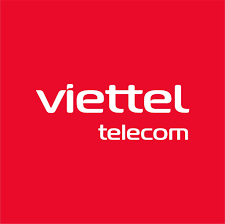Viettel and KT will also collaborate on creating AI products for both consumer and enterprise segments
In sum – what you need to know:
Viettel, KT partner on AI infra – The $95 million agreement focuses on developing AI data centers, GPU farms and Vietnam’s AI ecosystem, supporting Viettel’s national AI strategy.
New AI products and services – Plans include Vietnamese-language virtual assistants, anti-fraud tools and a national AI model, with joint consulting and a global AI hub in Hanoi.
Vietnam’s AI push accelerates – Viettel recently launched two major AI data centers and secured 700 MHz spectrum to expand 5G and IoT coverage to 99% of the population by 2030.
South Korean telecom operator KT Corp. has signed a US$95 million agreement with Vietnamese state-run operator Viettel Group to jointly advance artificial intelligence (AI) capabilities in Vietnam, with a focus on developing AI data centers and infrastructure.
As reported by The Korea Economic Daily, the partnership will span six core areas of “AI transformation” to support Viettel’s national strategy for AI development. Key elements of the cooperation include the co-development of AI data centers and GPU farms aimed at scaling Vietnam’s cloud and AI ecosystem.
In addition to infrastructure, the pair will also collaborate on creating AI products for both consumer and enterprise segments. Planned offerings include a national AI model, Vietnamese-language AI virtual assistants as well as AI-powered tools to combat voice phishing and digital fraud.
The report also stated that the deal also stipulates joint efforts in AI consulting, business development and the establishment of a global AI transformation development hub in Hanoi.
Viettel had launched its first AI-optimized data center in Hanoi in April 2024. More recently, in April 2025, it had inaugurated its largest AI facility to date in Ho Chi Minh City. That data center is designed with an IT load capacity of 140 MW to support AI and other hyperscale workloads.
Viettel has recently secured a 700 MHz spectrum block for VND1.95 trillion ($75.2 million), a frequency band the government has been attempting to auction for the past several years. According to state media, Viettel won the rights to the so-called B2-B2′ block (713–723 MHz and 768–778 MHz). The license is valid for 15 years and will be used to support both 4G and 5G connectivity, including Internet of Things (IoT) applications such as smart cities, precision agriculture and intelligent transportation systems.
The carrier noted that the newly acquired spectrum will support its goal of reaching 99% population coverage across Vietnam by 2030. Viettel also plans to deploy over 20,000 5G base stations during 2025.
In January, Viettel had informed that its 5G network reached 4 million subscribers after the company launched the service in October 2024.
The telco had said that these 4 million subscribers accounted for 70% of 5G-enabled devices within the coverage area of the carrier’s 6,500 5G base stations.
Viettel has established two 5G laboratories in Hanoi and Ho Chi Minh City. These facilities enable developers to test applications and address challenges such as signal interference or protocol mismatches, ensuring that new IoT and 5G technologies are well-suited for Vietnam’s market.
In October 2024, Viettel had launched what it claimed to be Vietnam’s first commercial 5G service. At the time of the launch, Viettel said it had deployed network infrastructure to provide 5G services to all 63 localities in Vietnam, focusing in particular on tourism sites, seaports, airports, industrial parks, hospitals and schools.
The telco noted that the new 5G service can offer connection speeds of up to 1 Gbps, with nearly zero ping. Viettel is deploying the 5G service using both Standalone (SA) and Non-Standalone (NSA) architectures.

